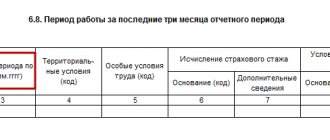The concept of a civil contract
The concept of a contract means an agreement of 2 or more persons, under the terms of which certain civil rights and obligations are established, changed or terminated (Clause 1 of Article 420 of the Civil Code of the Russian Federation).
You can find more complete information on the topic in ConsultantPlus. Full and free access to the system for 2 days.
At the same time, the parties are free to enter into agreements of both types directly provided for by law, and those not regulated by law and other regulations (Clause 2 of Article 421 of the Civil Code of the Russian Federation).
Taking into account the freedom of contract provided by the Civil Code of the Russian Federation, civil contracts provided for by the legislator (the concept, types, classification of which are discussed in more detail later in our article) can simultaneously combine the features of agreements of various types.
IMPORTANT! An agreement, the subject of which is the receipt of a service or result of work, should be distinguished from an employment contract, which is regulated not by the Civil Code of the Russian Federation, but by the Labor Code of the Russian Federation (for more details, see the article Procedure for concluding an agreement under the Civil Code of the Russian Federation).
§ 16. Civil relations
High-quality solutions and detailed GDZ in social studies for 9th grade students, textbook authors: Bogolyubov L.N., Matveev A.I., Zhiltsova E.I..
Let's remember
What is meant by legal relations?
Legal relations are social relations that are regulated by the rules of law.
What areas of law are they regulated by?
Legal relations in various areas are regulated by various branches of law. In the area of crime - criminal law, property and non-property related to property - civil law, family and marriage relations are regulated by family law, etc.
What is property?
Property is property in relation to which the owner has the right of use, disposal and possession.
What forms of ownership do you know?
There is private property, state property and municipal property.
What is the essence of property relations?
The essence of property relations is that their subject is material wealth.
Let's think about it
Can a five-year-old child participate in civil legal relations?
No, a five-year-old child can make minor civil legal transactions, since according to the civil code, minors aged six to fourteen years have the right to independently commit:
- 1) small household transactions;
- 2) transactions aimed at obtaining benefits free of charge, which do not require notarization or state registration;
- 3) transactions for the disposal of funds provided by a legal representative or with the consent of the latter by a third party for a specific purpose or for free disposal.
Questions "?"
Remember the similarities and differences between legal entities and individuals, what property they have, how they carry out economic transactions, how the equality of different forms of ownership is expressed: private, state, municipal. Legal entities and individuals are subjects of civil law relations.
An individual can become an individual entrepreneur. For registration as an individual entrepreneur there is a simple procedure, for registration of a legal entity there is a complex procedure and a high state fee. An individual entrepreneur cannot sell a business, a legal entity can.
Fines and sanctions are higher for a legal entity. An individual entrepreneur is liable with all his property, a legal entity, namely a participant, with only his share.
Private property belongs to the citizen, state property belongs to the Russian Federation, municipal property belongs to the municipality. They are equal, the law protects all forms of property.
Questions "?"
How do you understand the word “emancipation”? Under what conditions is the emancipation of a minor who has reached sixteen years of age declared?
Emancipation is the establishment of independence and legal capacity.
In accordance with Article 27 of the Civil Code:
A minor who has reached the age of sixteen may be declared fully capable if he works under an employment contract, including a contract, or, with the consent of his parents, adoptive parents or guardian, is engaged in entrepreneurial activity.
A minor is declared fully capable (emancipation) by decision of the guardianship and trusteeship authority - with the consent of both parents, adoptive parents or trustee, or in the absence of such consent - by a court decision.
Parents, adoptive parents and guardians are not liable for the obligations of an emancipated minor, in particular for obligations arising as a result of harm caused to them.
Let's check ourselves
What is the essence of civil law?
Civil law is a branch of law that includes a set of legal norms that regulate property and personal non-property relations on the basis of equality and autonomy of the will of the parties.
Civil law regulates two types of social relations: property and personal non-property.
Property relations arise regarding property—material goods. These include things, works, household services - in a word, everything that has a monetary value.
Personal non-property relations arise regarding intangible benefits: inventions, works of science, literature, art, the right to honor and dignity of the individual, the right to privacy, etc. These relations may or may not be related to property relations.
What are the features of civil legal relations?
There are 2 features of civil law relations.
- 1. Equality of the parties. This means the absence of power subordination and dependence between them. Thus, tax and customs relations do not fall under civil law, because they are based on the authoritative subordination of the citizen to the state.
- 2.Autonomy of the will of the parties. This feature is expressed in the fact that each party, being independent, makes a decision freely, of its own free will.
What types of civil contracts do you know?
- Contract of sale. For example, buying and selling real estate, groceries in a store.
- Supply contract (for example, goods)
- Contract agreement. (For example: production of agricultural products).
- Donation agreement. (For example: donation of real estate, movable property).
- Lease agreement (warehouse rental)
- Lease agreement (if we are talking about residential premises)
What is the civil capacity of minors?
Article 26 of the Civil Code of the Russian Federation speaks of the legal capacity of minors aged fourteen to eighteen years
Minors aged fourteen to eighteen years old enter into transactions with the written consent of their legal representatives - parents, adoptive parents or guardian.
A transaction made by such a minor is also valid with its subsequent written approval by his parents, adoptive parents or guardian.
Minors aged fourteen to eighteen years have the right, independently, without the consent of parents, adoptive parents and guardians:
- 1) manage your earnings, scholarships and other income;
- 2) exercise the rights of the author of a work of science, literature or art, invention or other result of his intellectual activity protected by law;
- 3) in accordance with the law, make deposits in credit organizations and manage them;
- 4) make small household transactions
Upon reaching the age of sixteen, minors are also eligible to be members of cooperatives in accordance with cooperative laws.
What rights does the consumer have?
In accordance with the Law “On Protection of Consumer Rights”:
- Article 3. The right of consumers to education in the field of consumer protection
- Article 7. Consumer's right to safety of goods (work, services)
- Article 8. The consumer’s right to information about the manufacturer (performer, seller) and goods (work, services)
- Article 25. The consumer’s right to exchange goods of proper quality
- Article 32. The consumer’s right to refuse to fulfill a contract for the performance of work (rendering services)
How can he protect them?
Every citizen has the right to protect their rights. To do this, you need to contact the store where the product was purchased or the place where the service was provided.
It is also necessary to study the provisions of the Law “On Protection of Consumer Rights”. This is necessary in order to know your rights and be able to protect them yourself. Every citizen has the right to provide information about the product, as well as ways to return goods.
In the classroom and at home
1*. Which of the following transactions could a 15-year-old citizen make without parental consent (explain your answers):
a) become a member of the cooperative; – No Upon reaching the age of sixteen, minors are also eligible to be members of cooperatives in accordance with cooperative laws.
b) open your bank account; – Yes According to the Civil Code of the Russian Federation: A minor aged 14 to 18 years can independently open and manage a bank account if the bank is provided with the written consent of parents or adoptive parents, or a guardian, which states that the minor can independently open a bank account.
c) buy a plot of land; – No Registration is possible only with the consent of the legal representative
d) become the owner of a car; – No Only with the consent of the representative
e) register copyright for the computer program he created; – Maybe, but at 15 he needs an adult representative.
f) obtain a patent for an invention? – It can, since a patent for an invention in the Russian Federation can be obtained at any age. But at 15, he needs an adult representative.
What concept does the following definition correspond to: “...a type of transaction expressing the agreed will of two or more parties to establish, change or terminate civil rights and obligations”? Explain your answer.
This is the concept of "contract".
Since the Agreement is a type of transaction that expresses the agreed will of the parties to establish, change or terminate civil rights and obligations.
13-year-old V. came to the bank to conclude a bank account agreement. However, the bank employee refused him, suggesting that he come with his parents. Is the bank employee right? Give reasons for your answer.
The employee is right, since: Article 26 talks about the legal capacity of minors aged fourteen to eighteen years. Minors aged fourteen to eighteen years old enter into transactions with the written consent of their legal representatives - parents, adoptive parents or guardian.
According to the Civil Code, minors aged six to fourteen years have the right to independently commit:
- 1) small household transactions;
- 2) transactions aimed at obtaining benefits free of charge, which do not require notarization or state registration;
- 3) transactions for the disposal of funds provided by a legal representative or with the consent of the latter by a third party for a specific purpose or for free disposal.
The citizen filed a lawsuit against the municipal housing repair and maintenance company that services his house for compensation for moral damages.
In support of the claim, the citizen indicated that not far from the entrance of his house he fell into an open manhole, injuring his leg. He was treated for a long time, but still limps. Make a reasoned guess as to what decision the court will make.
The decision may be in favor of the citizen, since an open hatch is the concern of the company carrying out the repair. She will have to pay for treatment and moral damages. It is necessary to write a statement of claim, provide certificates of treatment, receipts for the purchase of medicines, etc.
Name the services that are provided to you personally and your family. Which of them give rise to civil legal relations and which do not? Explain your answer.
For example, the service of a cleaner and nanny. This is a service agreement. According to the service agreement, the “nanny” is required to clean the apartment and look after the younger brother. And my father, as the second party to the agreement, must pay the amount established in the agreement. These are civil legal relations.
Fill out (in your notebook) the table “Types of material and intangible benefits.”
| Material goods | Intangible benefits |
| money | right to a good name |
| car | health |
| Vacation home | poetry |
| land plot | invention |
| karaoke | information |
| camcorder | right to personal and family secrets |
7*. Discuss with your parents and friends the question: is property a blessing or a burden? Prepare a short message on this topic.
I believe that property is both a blessing and a burden. Property is a blessing. After all, the owner can dispose of his property at his own discretion. For example, a car.
You can own it, use it, donate it, sell it. But on the other hand, it is a burden. Since you need to pay tax for a car, take out expensive insurance, maintain repairs, etc.
Classification of contracts in civil law according to the subject of the agreement
Based on this criterion, the following contracts can be distinguished:
- on the transfer of proprietary rights to property (for example, sales and purchase agreements, leases, etc.);
- for the performance of work (contracts, etc.);
- for the provision of services (contracts for paid services, transportation, transport expedition, etc.);
- on the use of exclusive rights to the results of intellectual activity and know-how (license agreements, commercial concession agreements, etc.);
- on joint activities (constituent agreement of a non-profit organization, etc.).
This list does not cover all areas where contracts are used, which also include a marriage contract, a guarantee agreement, a settlement agreement, a production sharing agreement, etc.
The concept and types of civil law contracts are also covered in sufficient detail in other materials on our website, so we recommend that you familiarize yourself with them (for example, Property Trust Management Agreement, etc.).
Mutual agreements
In mutual contracts, each party acquires rights and obligations towards the other party. Under such an agreement, “each party is considered a debtor in respect of what it is obliged to do in favor of the other party, and at the same time a creditor in respect of what it has the right to demand.”
Unilateral agreements
A unilateral agreement gives rise to only rights for one party, and only obligations for the other. Therefore, “only one of the parties is obliged to perform certain actions in favor of the other, and the latter has only the right of claim against it.”
An example of a unilateral agreement is a loan agreement: the borrower is obliged to return to the lender a certain amount of money or an amount of other things equal to the borrowed amount, and the lender has the right to demand that the borrower return what was received.
Compensatory agreements
An agreement is considered compensated if “one party must receive payment or other consideration for the performance of its obligations.”
The most typical case of such provision is payment in the form of monetary compensation. Thus, under a lease agreement, the lessor undertakes to provide the lessee with possession and use of the property, and the lessee undertakes to pay the rent on time.
Some contracts can be either paid or gratuitous. Therefore, the law defines that “a contract is assumed to be for compensation unless otherwise follows from the law, other legal acts, as well as the essence or content of the contract.”
Free contracts
A gratuitous contract is one in which “one party undertakes to provide something to the other party without receiving payment or other counter-offer from it.” An example of a gratuitous agreement is a gift agreement, as well as an agreement for the gratuitous use of property.
Free contracts
Free contracts include those whose conclusion is entirely at the discretion of the parties.
Binding contracts
Mandatory contracts include contracts the conclusion of which is mandatory for at least one party.
The Civil Code distinguishes a special type of obligatory contract - a public contract. In Art. 426 contains the following definition of a public contract: “A public contract is an agreement concluded by a commercial organization and establishing its obligations to sell goods, perform work or provide services that such an organization, by the nature of its activities, must carry out in relation to everyone who turns to it (retail trade , transportation by public transport, communication services, energy supply, medical, hotel services, etc.).”
Characteristic features of a public contract
:
· An obligatory party to the agreement is a commercial organization; · The specified commercial organization must carry out activities of selling goods, performing work or providing services. · This activity must be carried out by a commercial organization in relation to everyone who applies to it (retail trade, transportation by public transport, communication services, etc.); · The subject of the agreement must be the implementation by a commercial organization of certain economic activities.
Concept and types of contracts in civil law: other classification criteria
The above classification of contracts is not the only possible one. For example, it is possible to differentiate contracts based on the possibility of participation of the parties in the process of agreeing on conditions, and in this case, from the general range of agreements, an adhesion agreement can be distinguished based on the above criteria.
Contracts can be classified according to the following criteria:
- remuneration (compensated and gratuitous);
- number of sides (two-sided, three-sided, etc.);
- registration in the Civil Code of the Russian Federation and other regulations (named and unnamed);
- moment of occurrence of the obligation (real and consensual);
- structure (simple and mixed);
- the nature of the agreements (preliminary, basic, framework, with approximate conditions, optional, etc.).
Thus, there may be several types of contracts, depending on the criteria by which they are distinguished. Moreover, each contract can simultaneously belong to different types depending on the selected classification criterion.
Types of contracts and civil capacity
SOCIAL STUDIES 9TH GRADE
Lesson 29
Topic: Types of contracts
The Civil Code of the Russian Federation specifies several dozen types of agreements (transactions). Those in which citizens most often participate are already familiar to you (for example, contracts of purchase and sale, storage, rental, rental housing, barter (exchange), transportation of passengers, bank deposits, donations, household contracts, paid services: utilities, information, etc.).
Agreements can be concluded orally and in written (simple and notarized) form. Thus, the most common is the oral form of concluding a purchase and sale agreement with the issuance of a cash or sales receipt to the buyer. A gift agreement can also be carried out orally, which, unlike other types of agreements, is gratuitous. In other words, if you gave a friend your favorite T-shirt, you have no right to demand monetary compensation or return of the gift from him. A household contract, say, apartment renovation, is a different matter. It obliges the customer to pay for the work performed by the contractor and is confirmed by a written document on the terms of the transaction. Written documents also include receipts that you pay under utility contracts (energy supply, heating, telephone communications, etc.).
But housing exchange agreements and other real estate transactions require not only simple written confirmation, but also notarization and, in addition, state registration. Notarization indicates that the transaction is fair and legal, and state registration indicates its official, public legal recognition and is accompanied by the issuance of a certificate of ownership to the parties. We advise you not to lose documents confirming transactions. They are of paramount importance in protecting your consumer rights. But more on this later, but now let us emphasize that a civil contract always means assumed obligations, the ability to manage one’s rights and properly fulfill one’s obligations. Failure to fulfill the terms of the contract entails civil liability: fines, penalties, etc.
At what age is a person recognized as legally capable, i.e., capable of acquiring and exercising legal rights and obligations through his actions, and bearing civil liability? Full legal capacity occurs upon reaching adulthood - at 18 years of age. Children under 6 years of age are completely incompetent. All transactions are carried out for them by their parents.
Children aged 6 to 14 years have partial civil capacity. They have the right to independently (without parental consent) do:
1) small household transactions: purchasing groceries, books, notebooks, etc. in a store;
2) transactions aimed at receiving benefits for free, say, accepting a computer as a gift;
3) receive funds from parents for certain purposes or for free disposal (pocket money).
Partial legal capacity is also typical for children from 14 to 18 years old, but its scope increases significantly.
1. In addition to transactions that a young child can make, a teenager has the right to independently dispose of his scholarship, earnings, and other income. (Imagine that your dad gave you a certain amount of money to buy a motorcycle in the future. This money can be classified as “other income” and is best placed in the bank.)
2. A teenager has the right to make deposits in a bank and manage his deposits. The bank, accepting a sum of money from the depositor, is obliged to return it with interest on the terms stipulated by the agreement. The agreement is formalized by issuing a savings book to the client.
3. A teenager can independently exercise the rights of the author of works of his intellectual activity. Many talented children, already in adolescence, have published stories, poems, works of music and painting. From the age of 16, teenagers have the right to be members of cooperatives. All other transactions are made by teenagers with the written consent of their parents.
4. At the same time (attention!) minors aged 14 to 18 years independently bear property liability for the transactions that we mentioned above. For the harm they cause, such minors bear responsibility under the Civil Code of the Russian Federation.
Illustrations:
Main types of contracts under the Civil Code of the Russian Federation
The following types of contracts can be distinguished:
- mixed;
- public;
- accessions;
- preliminary;
- frame;
- option to conclude a contract;
- option agreement;
- subscriber;
- in favor of a third party.
This classification is based on the differences between the method of constructing contractual relations and general structures. Thus, based on each of the above types, an agreement of any type can be drawn up.








